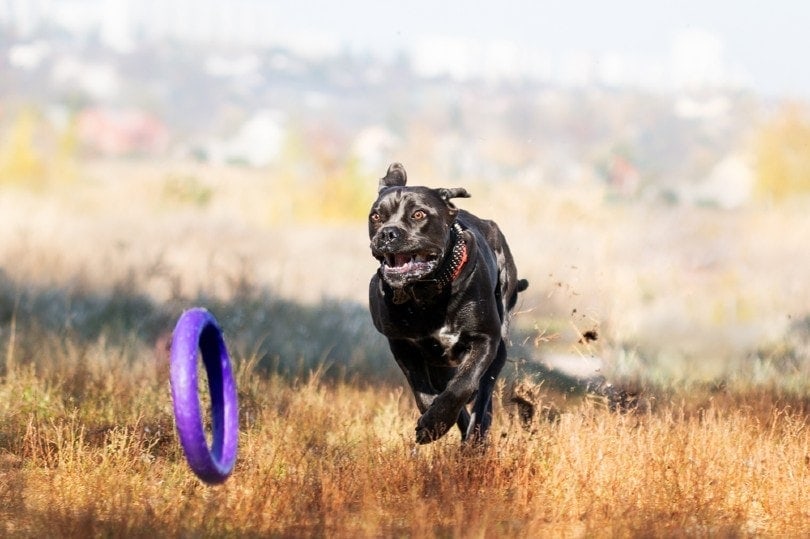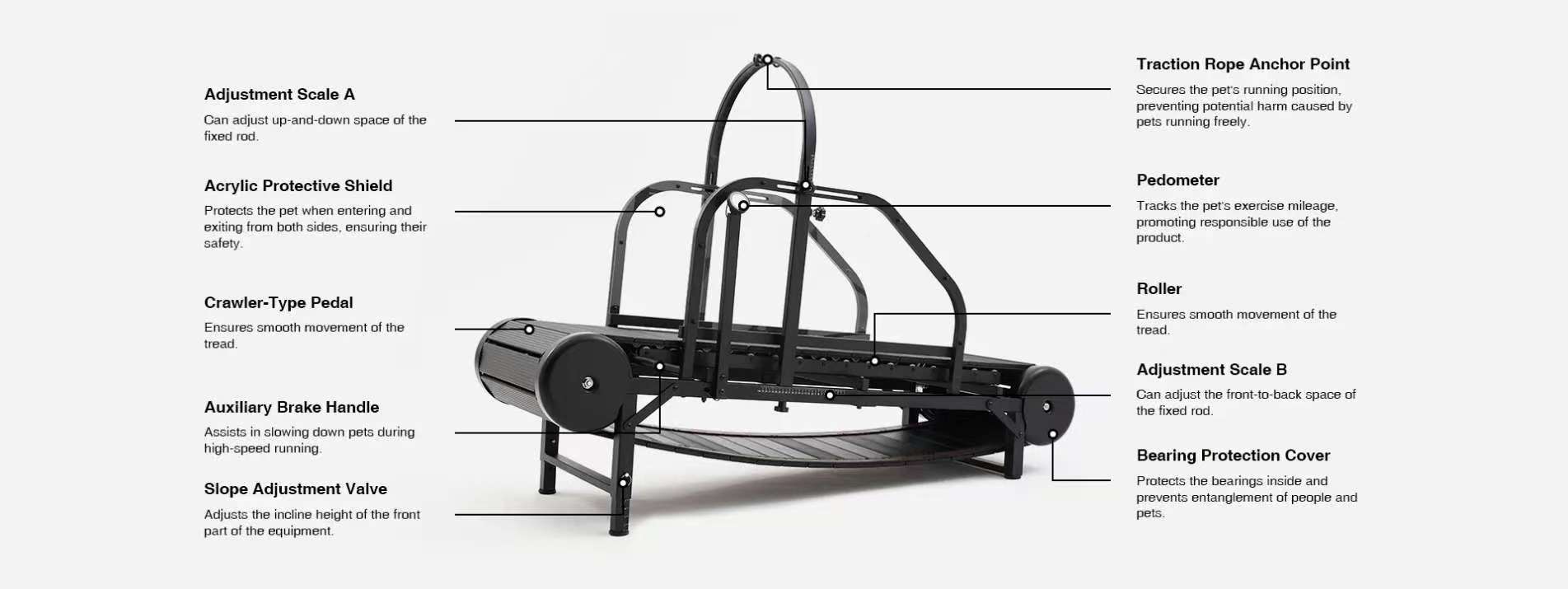Cane Corsos are not just big dogs; they are loyal friends. They have specific dog treadmill needs due to their strong bodies and protective instincts. Knowing how to train your Cane Corso is important for being a good owner. A dog treadmill can help a lot with this training, providing an easy way to meet their exercise needs. This tool helps keep your Cane Corso healthy and active.
Key Takeaways
-
Use positive reinforcement, like treats and praise. This encourages good behavior during training.
-
Include regular exercise, like daily walks and playtime. This keeps your Cane Corso healthy and stops bad behavior.
-
Think about using a dog treadmill for regular exercise. It helps prevent injuries and keeps their mind active, especially in bad weather.
Temperament and Physical Traits

Cane Corsos have special temperament and physical traits. These traits affect how you train your dog. Here are some important traits to think about:
-
Guarding Instincts: Cane Corsos want to protect their family. They naturally guard their home. This can be good, but they need training to avoid being too aggressive.
-
Intelligence: This breed is very smart. They learn fast but can be stubborn. You need to use steady training methods to keep them interested.
-
Energy Levels: Cane Corsos are full of energy. They need regular exercise to stay healthy and happy. Without enough activity, they might show bad behavior.
-
Socialization Needs: Socializing during key times is important for training. Letting your Cane Corso meet different people, places, and animals helps them grow up well.
These traits affect how you train your dog. For example, their guarding instincts can cause problems if not handled early. Owners and breeders may misunderstand these traits, leading to wrong training ideas.
By knowing your Cane Corso's temperament and physical traits, you can make a training plan that fits them. This will help you create a strong bond with your dog and make sure they become a good companion.
Obedience Training: The Foundation

Obedience training is very important for a well-behaved Cane Corso. This breed needs structure and clear commands. Start training early, when your Cane Corso is still a puppy. Early training shapes their behavior and builds your bond. Here are some key points to think about:
-
Start with Basic Commands: Teach your Cane Corso basic commands like "sit," "stay," and "come." These commands are the foundation of obedience training. Use positive reinforcement, like treats or praise, to encourage good behavior.
-
Consistency is Key: Be consistent with your commands and rules. If you allow certain behaviors one day and stop them the next, your Cane Corso will get confused. Set clear rules and stick to them.
-
Short Training Sessions: Keep training sessions short and fun. Aim for 5 to 10 minutes each time, especially for a Cane Corso puppy. This breed can lose focus quickly, so short sessions work best.
-
Socialization: Include socialization in your obedience training. Let your Cane Corso experience different places, people, and animals. This helps them grow into well-adjusted adults.
-
Patience and Persistence: Training a Cane Corso takes patience. They may test your limits, but sticking with it pays off. Celebrate small wins and stay calm during challenges.
Obedience training teaches your Cane Corso important commands and builds a strong bond between you and your dog. A well-trained Cane Corso is a joy to have and a loyal friend.
Socialization: Building Confidence
Socialization is very important for training your Cane Corso. It helps them grow into confident and friendly dogs. Exposing them to different social situations early is key. This practice builds their confidence and reduces aggressive behavior. When you let your Cane Corso puppy meet new people, places, and animals, they learn to interact well with everything around them.
Here are some good ways to socialize your Cane Corso:
-
Start Early: Begin socializing as soon as you get your Cane Corso puppy. The sooner you start, the better. Puppies are more open to new things in their first few months.
-
Positive Experiences: Encourage good interactions with people and other animals. Use treats and praise to reward them for good behavior. This helps your dog link new experiences to positive feelings.
-
Controlled Environments: Gradually introduce your Cane Corso to new places. Start in calm areas before going to busier ones. This way, your dog can adjust without getting scared.
-
Establish Boundaries: While socializing, set clear rules. Teach your Cane Corso what behavior is okay. This helps them know how to act in different situations.
-
Regular Outings: Make socialization a regular part of your life. Take your Cane Corso on walks, visit dog parks, or join training classes. These outings give them valuable experiences that boost confidence.
By focusing on socialization, you help create a well-adjusted Cane Corso. This training makes them friendly companions. Remember, a confident dog is less likely to show fear or aggression.
Physical Training: Maintaining Fitness
Cane Corsos are active dogs that require regular physical exercise to stay healthy. Traditional forms of exercise like long walks, playtime in a secure yard, and light jogging are beneficial. However, incorporating doggo treadmills into their routine offers several advantages. Treadmills provide a controlled environment where owners can regulate the speed, duration, and intensity of the workout. This is particularly useful in adverse weather conditions or for owners with limited outdoor space.
Benefits of Doggo Treadmills for Cane Corsos

Cane Corsos need special exercise. A dog treadmill can help meet these needs. Here are some good things about using a dog treadmill for your Cane Corso.
Consistent Exercise
A dog treadmill gives your Cane Corso regular exercise. Daily workouts keep them healthy. You can set a time each day for their exercise. This routine helps your dog know when to work out. Consistency is important for your Cane Corso's treadmill needs. You can change the speed and incline to fit your dog's fitness. This way, your dog gets the right amount of exercise.
Injury Prevention and Rehabilitation
Using a dog treadmill can help stop injuries. Cane Corsos can have health problems, especially with their joints. Controlled exercise on a treadmill lowers the risk of overdoing it. You can watch your dog's movements closely to prevent strain. If your Cane Corso gets hurt, a treadmill can help them heal. Gentle, low-impact workouts help them recover safely. This safe space lets you adjust their exercise to what they need.
Mental Stimulation
A doggo treadmill is good for more than just exercise. It also helps their minds. As your Cane Corso walks or runs, they think more. You can teach them commands or tricks during treadmill time. This keeps their brains active and stops boredom. A dog with a stimulated mind is less likely to misbehave. Meeting your Cane Corso's treadmill needs helps them stay happy and well-behaved.
Adding a dog running machine to your Cane Corso's routine can improve their health. It helps their fitness, prevents injuries, and gives them mental challenges.

In conclusion, Cane Corsos require a comprehensive training approach that encompasses obedience, socialization, physical fitness, and potentially advanced training. Incorporating doggo treadmills into their routine can be a valuable addition, offering controlled exercise, injury prevention, and mental stimulation. By understanding their needs and using the right training methods, owners can ensure that their Cane Corsos grow into well - behaved, healthy, and happy companions.
FAQ
When should I start training my Cane Corso?
You can start training your Cane Corso at eight weeks old. Early training helps shape their behavior and builds a strong bond with you.
Can I train my Cane Corso by myself?
Yes, you can train your Cane Corso at home. Use positive reinforcement and be consistent. If you have trouble, think about getting professional help.
How much exercise does a Cane Corso need each day?
Cane Corsos need at least 30 to 60 minutes of exercise daily. Regular activity keeps them healthy and stops bad behavior.










0 Comments